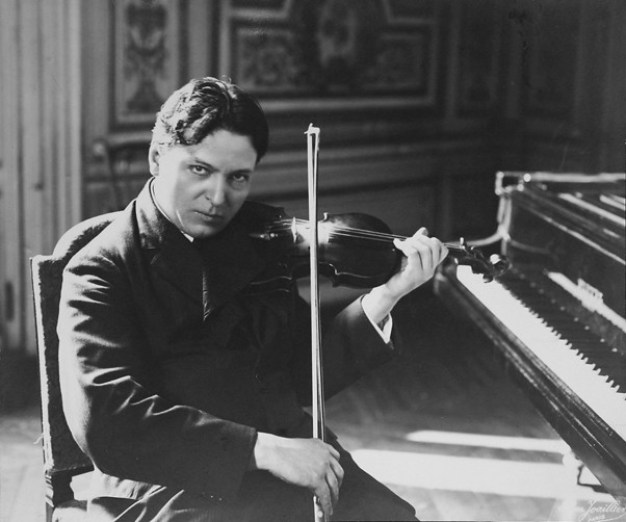On a rare octet night, a rarity by Enescu shines brightly

It is rare enough for one octet to be scheduled on a chamber music program but three in one evening certainly sets a record for South Florida.
That is exactly what occurred when Friends of Chamber Music presented both the Dover Quartet and Escher String Quartet on Thursday night at Florida International University’s Wertheim Performing Arts Center. The most famous work for eight strings, by Felix Mendelssohn, was given a musically scrupulous reading but an infrequently heard opus by George Enescu proved the evening’s real gem.
The concert opened with Two Pieces for String Quartet, Op.11 by Dmitri Shostakovich. Even in this early Prelude and Scherzo, Shostakovich’s quintessential angst and pounding dissonance are strongly evident. The short vignettes afforded the eight players a good warmup and offered an intriguing look into the youthful creative efforts of a twentieth-=century giant.
Superb playing, linear clarity and sensitively balanced ensemble marked the opening pages of Mendelssohn’s Octet in E-flat Major. The work of a sixteen-year-old genius, the score abounds in high spirited invention and melodic grace. Pacing the first movement more broadly than most performances, the Dover and Escher players eschewed overly sweetened lines in favor of stormy impetuousness. Both the sentiment and drama of the Andante were well served. Darting lightness and transparent variations of dynamics abounded in the famous Scherzo, the player’s strong rhythmic current unabated even in contrasting episodes. The crisp accents and head long pace of the final Presto culminated in a brilliant coda.
While Enescu was best known for his Romanian Rhapsodies, which are staples of the pops concert repertoire, he was a prolific composer of more serious works. Three symphonies, solo violin, piano and vocal works, chamber music and his opera Oedipe await more frequent performances.
All the more credit to the Dover and Escher musicians for assaying Enescu’s Octet in C Major, Op. 7 after the familiar Mendelssohn. Written in 1900 but not performed publicly until 1909, the nearly forty minute score is a large scale, darkly romantic essay. Spiced with touches of Romanian nationalism and Gallic perfume, the work is structurally complex but rewarding for listeners and players alike.
Moments of Brahmsian heft in the first movement are followed by a wild and unhinged Très fougueux like a folk dance running off the rails. The movement tests the players’ precision and unison skill and the Dover and Escher more than made the grade. In the midst of this emotive hothouse, the Lentement is an outpouring of wordless song with a decidedly French accent. The concluding Mouvement de valse bien rhythmée suggests the Ravel of Valses nobles et sentimentales. With cellos and violas’ tonal refulgence and gleam, the players brought heart and finesse to this important revival of a unique chamber music creation.
Friends of Chamber Music has cancelled next week’s concerts—Javier Perianes and Tabea Zimmermann on March 20 and Maxim Rubtsov and Anastasiya Naplekova on March 26—due to the coronavirus pandemic. miamichambermusic.org
Posted in Performances
Leave a Comment
Thu Mar 12, 2020
at 12:33 pm
No Comments